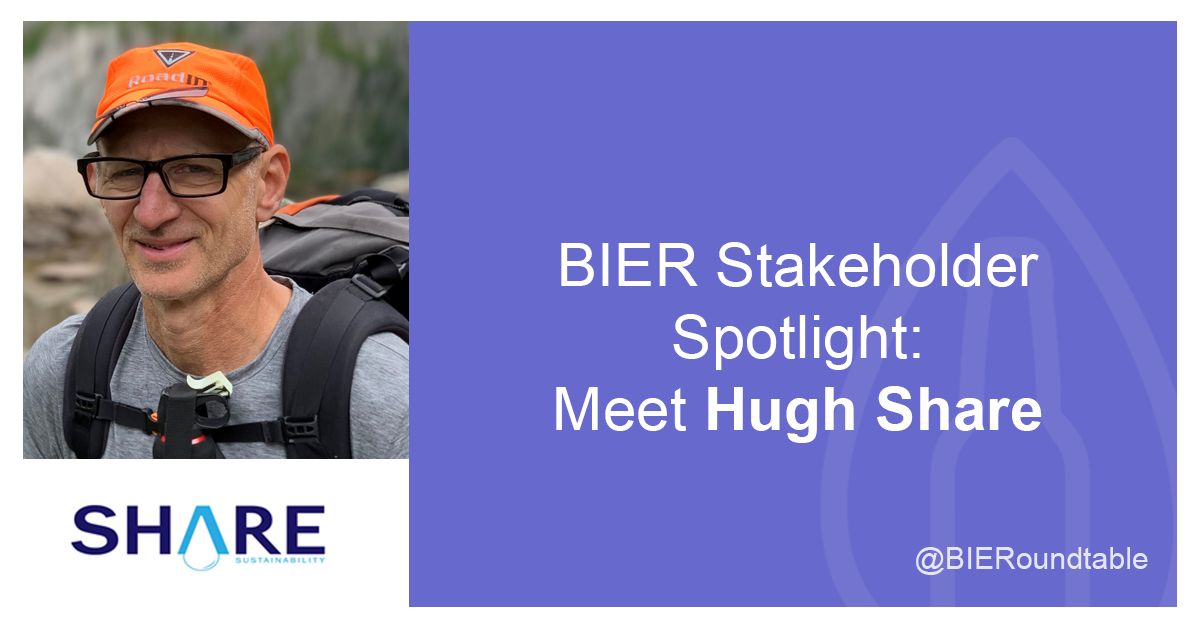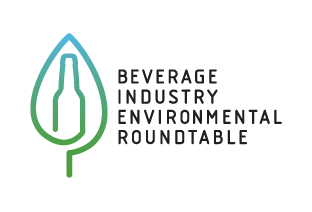BIER Stakeholder Spotlight: Hugh Share
Meet Hugh Share

BIER Stakeholder Spotlight: Hugh Share
Name: Hugh Share, Sustainability/water stewardship collaborator and cycling advocate for people with disabilities
Company: Share Sustainability
Connect with Hugh on LinkedIn, Twitter and Email
Welcome to our series aimed at spotlighting the individual leaders within BIER member companies and stakeholder organizations. Learn how these practitioners and their companies are addressing pressing challenges around water, energy, agriculture, climate change, and what inspires each of them to advance environmental sustainability in the beverage sector and collectively, overall.
Briefly describe your role and responsibilities and how long you have worked with your company
I feel very fortunate at this point in my life to have choices to pursue different passions. Bear with me for a moment because I’m going to start by looking back at my 34-year career with AB InBev, which has greatly influenced how I think about sustainability and in particular, water security. I retired in 2016 and will forever cherish both my 10 years at a brewery and my last seven years working on a global sustainability team. Working at a brewery gave me a realistic view of what would work when implementing global programs later and showed me the importance of seeking feedback from folks (i.e. stakeholders!) on the front line. During my last seven years with the company, I had the opportunity to be part of a global sustainability group, leading environmental and community programs across the value chain. I had exposure to different functions and their leaders, which allowed an opportunity to learn how the company worked. How many people can say their last 7 of 34 years with an organization were the most challenging, rewarding, and exciting? I took what I learned into my consulting practice, Share Sustainability, which I started in 2017 after taking one complete year off (mandated by my lovely spouse and children). I realized my passion for sustainability and water security in particular, still had a lot of flame in it and to be quite honest, I was frustrated at the slow pace of actions towards solving our global water challenges.
I love the outdoors and it has become a part of my daily routine, including riding a bicycle most places. I’ve volunteered for 13 years with a tandem cycling team here in St. Louis that rides with blind and visually impaired children. That program has blossomed into a coalition called Cycle St. Louis, which is committed to creating cycling opportunities for people with disabilities. I currently co-lead this effort. The inclusion of all people in typical activities we often take for granted is very important to sustainable, healthy communities. Just like the climate change and water scarcity/pollution tend to impact vulnerable people the most, mobility and recreation opportunities (and all the benefits those provide) are not easily accessible to this same group, including those with disabilities. When we take care of our most vulnerable, everyone benefits. I think 2020 has made that clearer for more people.
Last, and probably most important, the balance and diversity of my current roles include plenty of time for my family and myself. This balance was out-of-whack at certain points over the years. That’s why I started out by saying I was fortunate.
How has the organization’s sustainability initiatives evolved over the years and what are your priorities for 2020?
Early on we were mainly concerned about compliance and then started realizing that there were huge opportunities for improving efficiencies (material savings and utilities) within our manufacturing sites. That blossomed into diving deeper into these issues across the value chain, including social concerns. You can see the evolution in the different names of corporate functions over the years – EHS, environmental affairs, pollution prevention, CSR, corporate stewardship, and more recently sustainability. It’s been great to see more holistic approaches focused on root causes and where the greatest social and environmental impacts and opportunities lie, which for food and beverage companies, is the value chain.
In 2020, I’m focused on execution at the watershed level by bringing different stakeholders together to collaborate. Companies, NGOs, community members, and governments have good intentions, but need help on the “details of doing.” There is a lot of talk about collaboration, just search for the number of articles about it. In reality, it’s difficult to bring different stakeholders together to work on water issues.
Learn more about Hugh Share in this BIER Stakeholder Spotlight.

